The last two days in Cambridge were relentless, but in the best possible way. Tammy (my wife, who travels with me, and carefully ensures that I know where I am going now and what I am doing next) and I flew in early in the morning from Amsterdam after three days of nonstop press and talks, traveled half an hour by train, and booked in at the Hilton Hotel Cambridge City Center. Then we slept for three hours and found La Maison du Steak, which served an excellent ribeye. The waiter knew of my work, and said that it had helped him. We snapped a picture together.
I spoke that night to a full-capacity crowd of 1850 at the Corn Exchange – originally a warehouse where farmers and merchants traded cereal grains, but a concert hall since 1971.
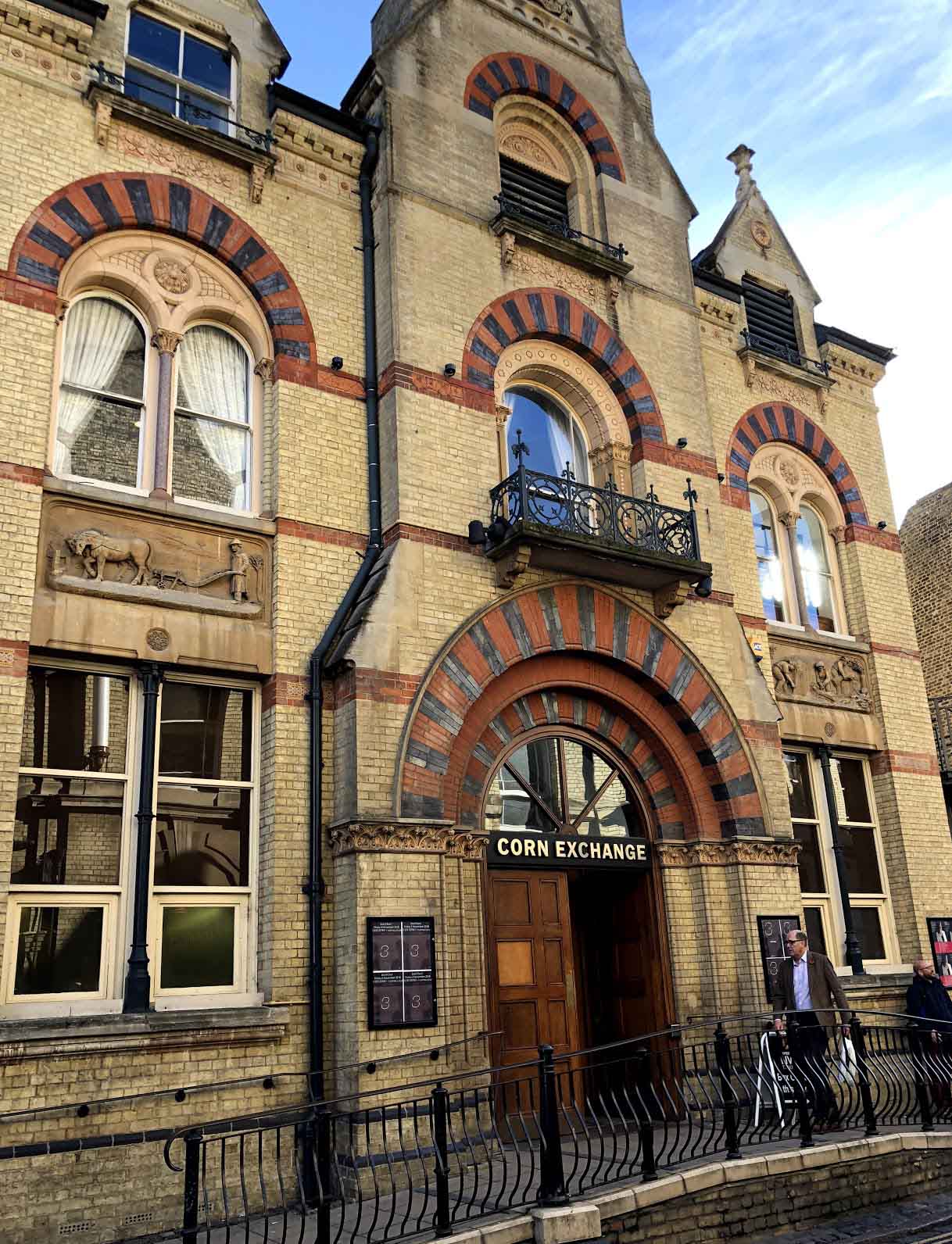
Pink Floyd’s founder Syd Barrett played his last concert there; it has housed performances by everyone from Box Car Willie to David Bowie.
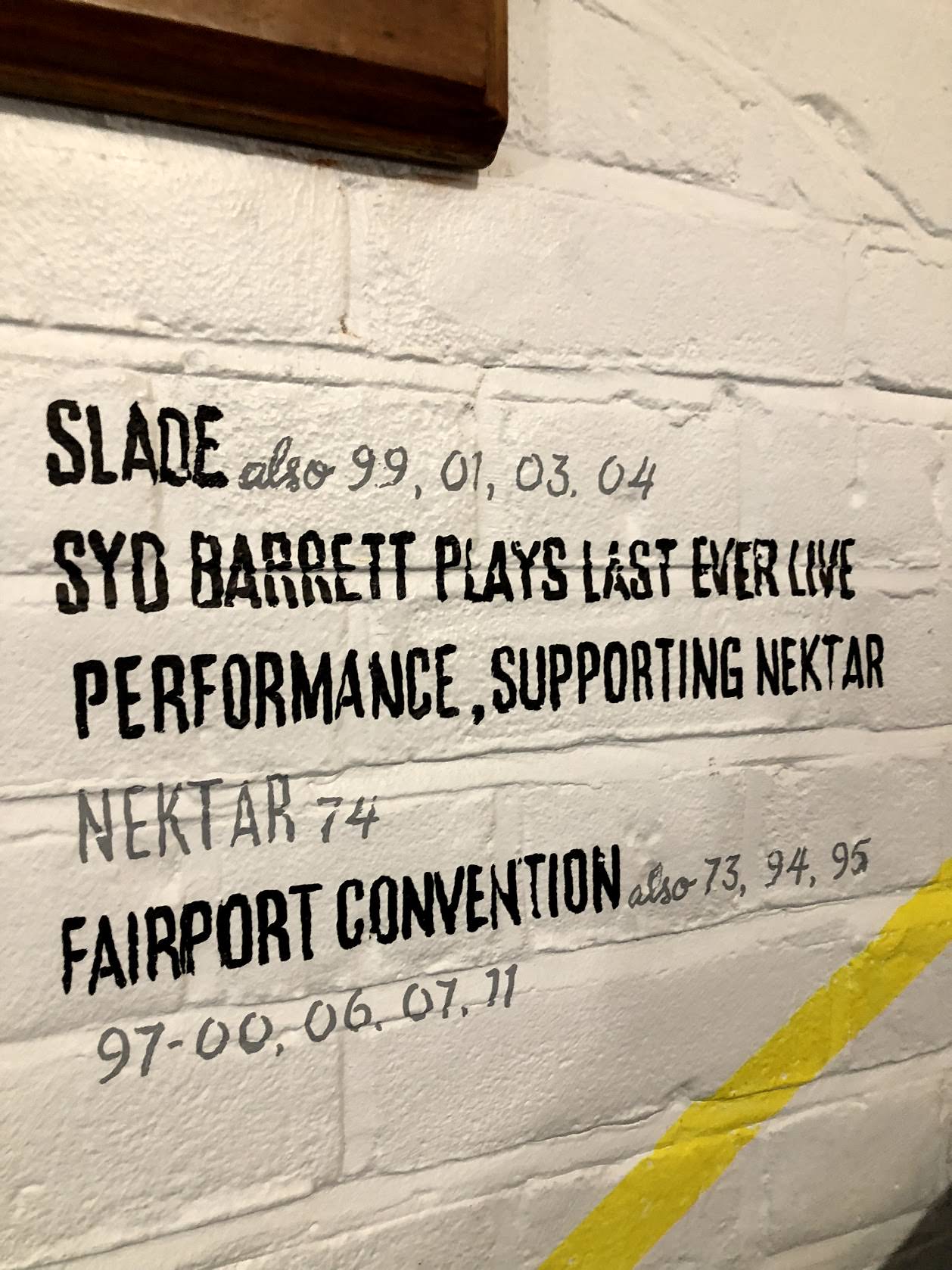 |
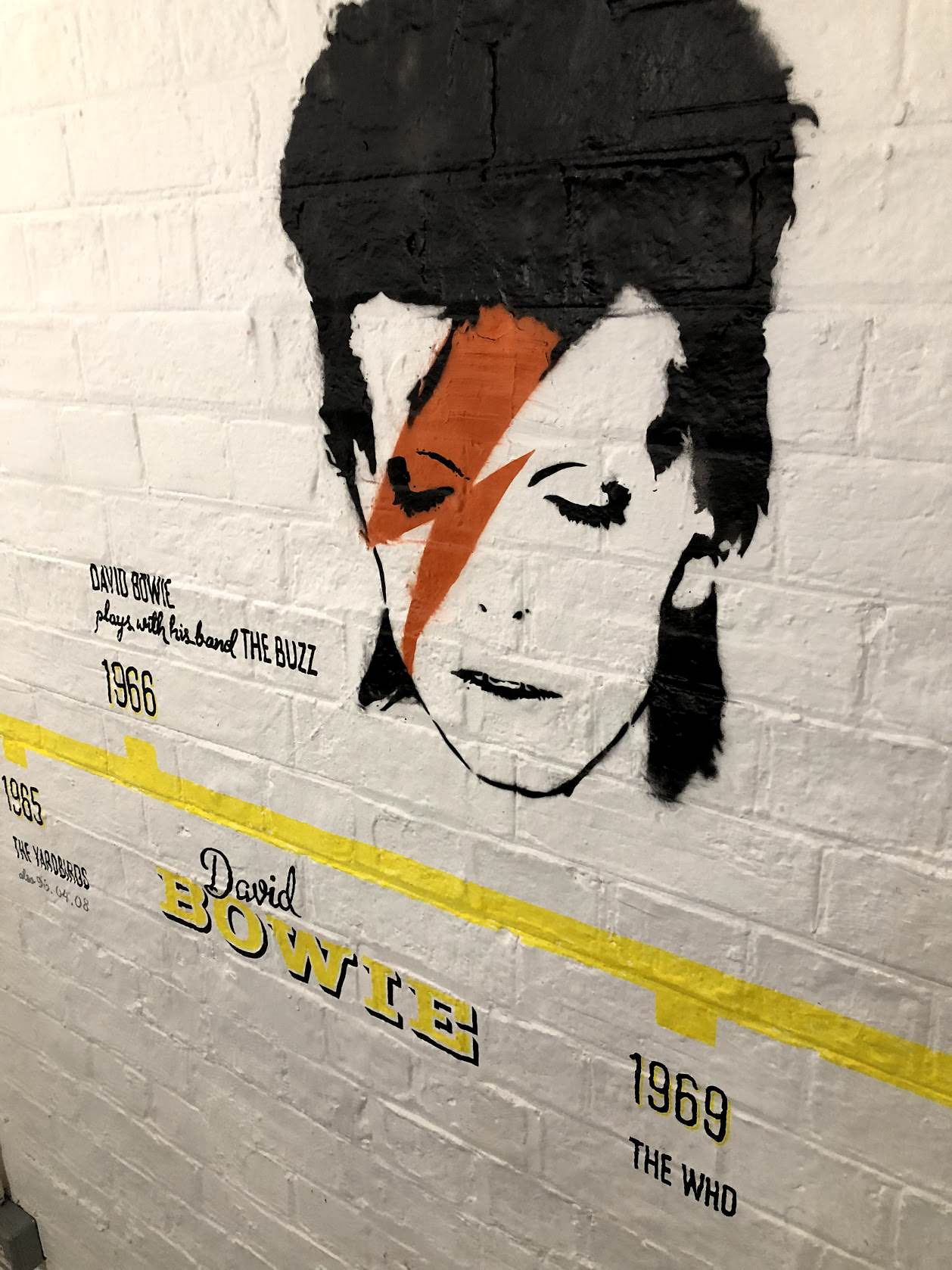 |
One of the impossibly cool aspects of this 100-city tour has been the chance to visit all these famous and infamous concert halls: The Orpheum in LA, The Fillmore in Detroit, London’s Apollo Hammersmith, The Ryman Auditorium (home of the Grand Ole Opry, where 1200 people sang Happy Birthday to me on June 12 of this year), and to follow in the footsteps of every performer you can imagine and many you don’t know: Johnny Cash, Minnie Pearl, Neil Young, Leonard Cohen. It’s a crazy and unexpected privilege. I visited the legendary Hatch Print Shop at the Country Music Hall of Fame in Nashville, hoping to garner a tourist simulacrum of their famous posters with my name emblazoned upon it (like those old Time Magazine Men of the Year fakes you could purchase on street corners) only to find that that venerable house had actually printed the promotional poster for my Nashville talk:
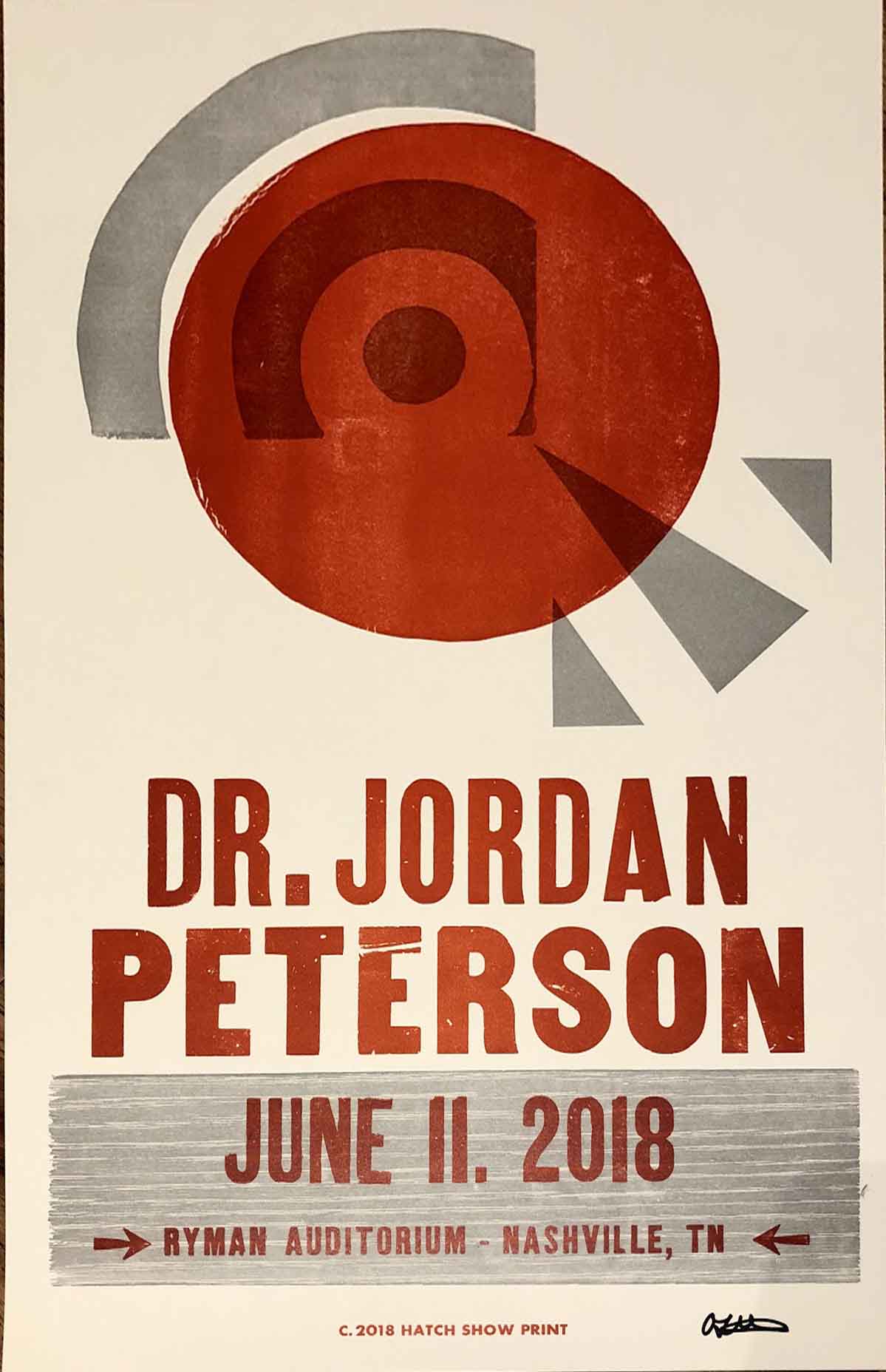
I spoke about Rule 6 from my book, 12 Rules for Life: Set your house in perfect order before you criticize the world.
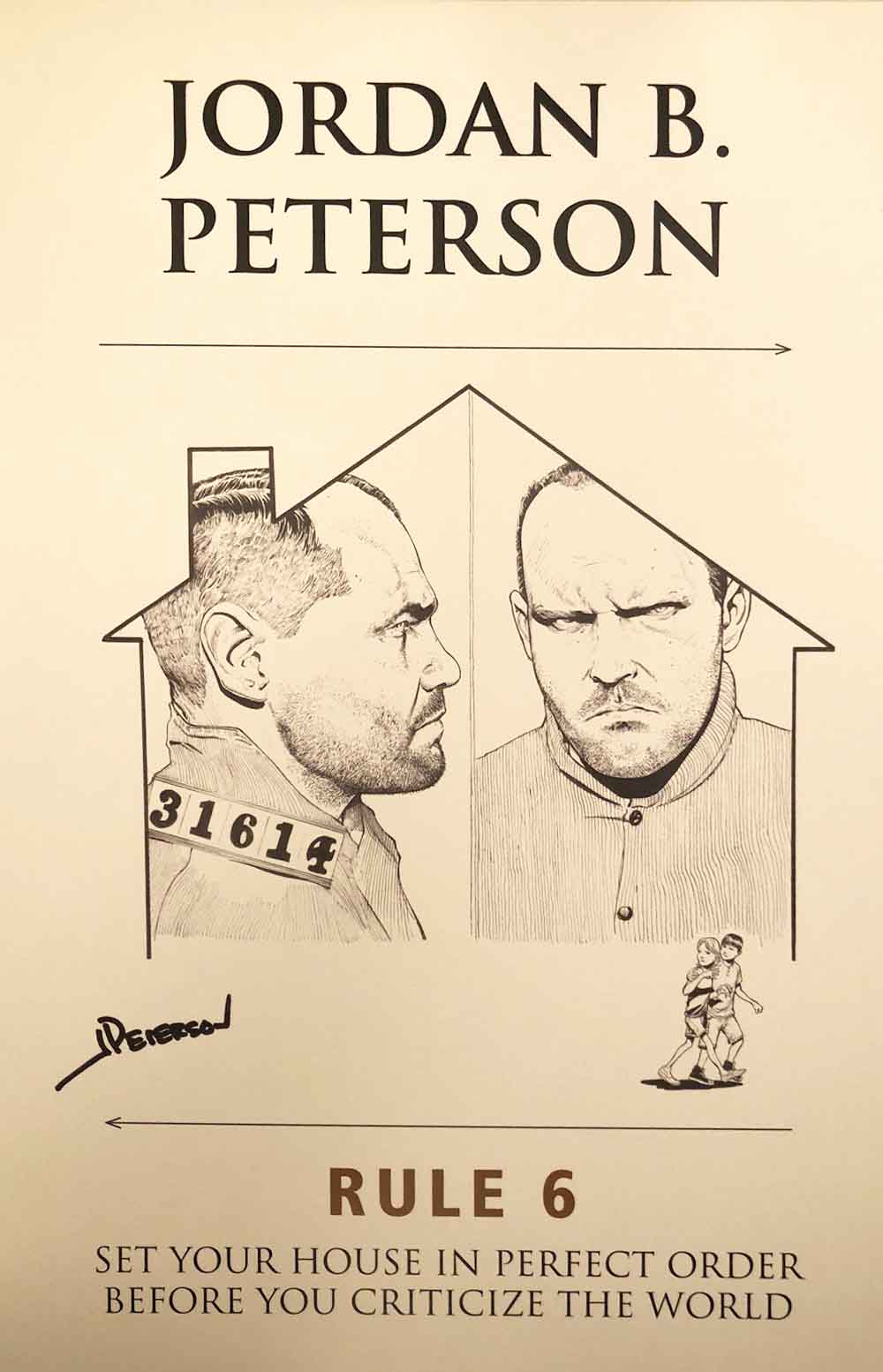
It is by far the darkest chapter in what can be a very dark book; a meditation on the deepest motivations of those who have chosen a truly malevolent path. I spoke about the hatred for humanity and for Being itself – for God, really – felt by and then so effectively expressed by the Columbine killers. What is anyone to make of the following statement, penned by Dylan Klebold, perhaps the most literate and creative of the two, the day before the assault?
About 26.5 hours from now the judgement will begin. Difficult but not impossible, necessary, nervewracking & fun. What fun is life without a little death? It’s interesting, when i’m in my human form, knowing i’m going to die. Everything has a touch of triviality to it.
Part of what can be made of it is this: Constant dwelling in dark places leads to the generation of dark ideas indeed. But that is an explanation of insufficient strength, given the horror of the situation. It’s more like this: For centuries, perhaps for millenia, human beings have meditated on the nature of evil, abstracting out its central aspects, and clothing it in personified form – and why? Because evil is a personality. It’s something that’s acted out. Each villain is an avatar of evil, as such: a partial actor of a very complex part. And each of us is capable both of understanding that part, and of acting it out, in our darkest times. But sometimes we become very completely possessed, particularly if we will it, and dream it, and plan it, for months or years. And then we can do very terrible things.
So I delivered what was likely the harshest and most hellish of the dozens of lectures I have given so far to the waiting Cambridge crowd, speaking about Dostoevsky’s Ivan Karamazov, who was not so much an articulate atheist but someone who hated God for the suffering of life, and Solzhenitsyn’s experience of the Gulag Archipelago, and the story of Cain and Abel, which is in truth (in metaphorical truth; in the fictional form which is more true than any mere factual biography) the account of two fundamental modes of being, one that aims heavenward, and the other aimed at hell. Those are the basic responses to the terror of self-consciousness, the awareness of death, and the knowledge of good and evil that uniquely characterize human beings. It is my belief, which I shared with the crowd, that the world is saturated in horror and darkness – enough so that clear apprehension of that condition can damage consciousness itself, particularly when naïve – but that the human spirit has within it, as the great English poet John Milton had it, strength sufficient to have stood, though free to fall. I have learned even more clearly during this lecture tour that there is light to be found in great darkness, and that contemplation of the suffering and malevolence that irrefutably characterizes life produces at some point the realization that we are all strong enough to withstand, resist and perhaps even rectify or redeem both. It was an exhausting 75 minutes of explication.
The next morning, I recorded a podcast with Dr. Stephen J. Blackwood, who is attempting, with the support of intellectuals around the world, to found a new liberal arts college in Savannah, Georgia. He’s hoping to produce an institution that will promote classic liberal and conservative values (as opposed to the appalling and logically incoherent mixture of Marxism and postmodernism that has come to dominate and deconstruct in the most literal sense the humanities and social sciences departments of far too many modern universities. I spent a lunchtime after that talking with a dozen scholars, many from Cambridge itself, some who had flown in from Canada and the US, about the necessity of re-establishing some solid ground at the heart of the university after far too many years of incessant, ungrateful destructive and careless criticism of the traditions of the west, the intellectual canon, and the dream-like religious narrative that lies necessarily at the foundation of our culture. It was of interest to all that a strange truce has emerged, by all appearances, between those more traditionally religious in their beliefs and the rational enlightenment types (such as Steven Pinker and Jonathan Haidt) – many of whom have come to realize that despite their differences they face a common threat from the chaotic nihilists and vengeful identity-politics players of the intransigent radical left.
We visited King’s College Chapel after that – a building properly regarded as one of the most beautiful in the United Kingdom, with vast vaulted walls and miraculously filigreed solid stone ceiling, suspended, impossibly, hundreds of feet in the air, extended above like trees in some cathedral grove, light filtering through the ancient stained glass like dappled sunlight through trees. Europe constantly brings me to the edge of tears with its visionary beauty. Why have we forgotten the power of such construction? How was it that our forebears were able to dedicate themselves to the task of producing something so magnificent, over spans of time that exceeded the single lives of all the craftsmen and artists who labored to produce the final work, the symphony in stone, realized by such a chapel? All constructed to remind men eternally to look upward and to aim in the same manner.
I spent ninety minutes afterward in a videotaped discussion with Sir Roger Scruton, author of some 50 books (!), much maligned conservative philosopher, repelled as long ago as 1968 by observing the student radicals in France: “an unruly mob of self-indulgent middle-class hooligans,” justifying their romanticized rebellion with “this ludicrous Marxist gobbledegook.” We spoke about the soul-deadening modern theory, much promoted in the fashionable disciplines, that power constitutes the fundamental human motive, that the past, the present and the future are to be considered the battle-ground between the different tribal groups of sex, gender, and race, and that there is no transcendent good or reality with which individuals might establish a genuine relationship, such that they could come to accept and even value their limited time on this mortal plane.
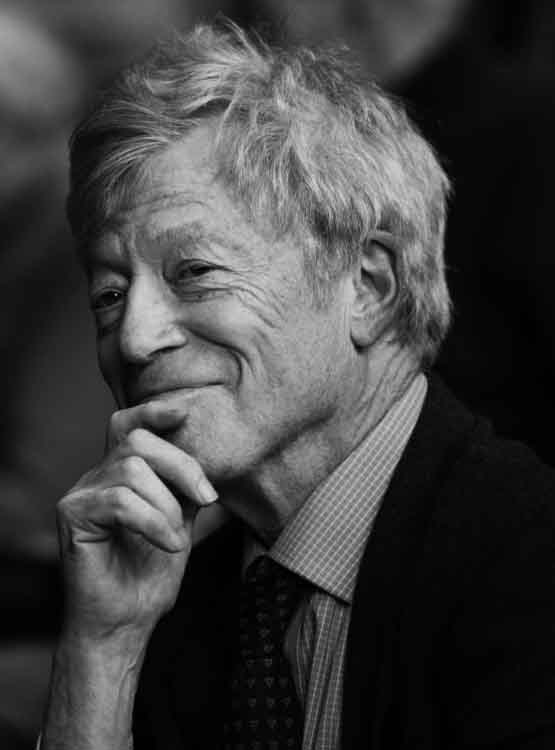
Dinner after that. Two more steaks, and a bit of a break, before spending 15 minutes at Evensong in another beautiful Cambridge chapel, during the ancient celebration of All Soul’s Day.
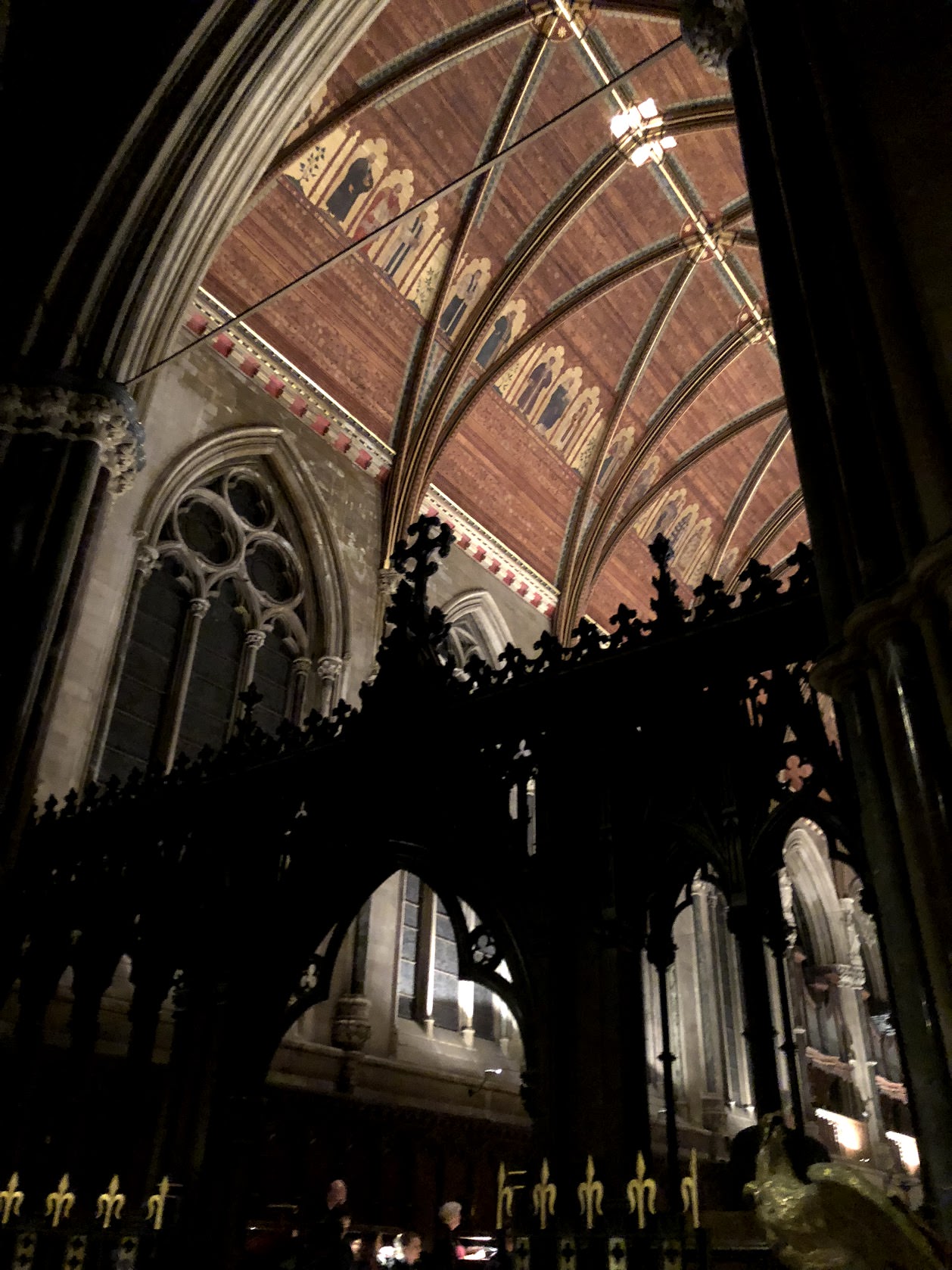
Then I went to fulfill an invitation to speak to 700 students at the Cambridge Union, the oldest debating society in the world (take that, Oxford). That was an interview, well-conducted by the student interlocutor, and a series of questions from the audience. It was a high-spirited, enthusiastic, contentious, exciting event, punctuated by questions about the possibility that the crisis of global warming might finally unite the human race (NO) and about the wishfully-described “pseudoscience” demonstrating that the biological differences in personality and interest that characterize men and women maximize, instead of disappearing, in societies as their wealth and tendency toward egalitarian social policies increases. The inevitable conclusion to be drawn by such studies (recently described by the London Times as on of the “best-established findings in psychology”)? the simultaneously pursuit of equality of opportunity (facilitated by political actions aimed at reducing differential barriers to accomplishment by men and women) will inevitably exaggerate differences in outcome, with regard to such things as occupational choice (and, perhaps, financial return). Thus, it appears that we will have to choose between maximizing the free choice expressed by maximally free men and women and minimizing sex differences in the work place. Since this puts paid to the radical leftist dream of both, simultaneously, the facts were met by a certain amount of stunned disbelief.
Afterward I was interviewed by two student journalists, both female. The first was fully human, and we had a productive and interesting although very brief exchange. The second hated me on sight. I encountered her glowering countenance while very pressed for time. Had I had the presence of mind, I would have called attention to the giant chip on her shoulder before bothering to engage in what was masquerading as an “interview” by a “journalist.” I told her that what I was doing on my tour was not primarily political. That was absolute heresy, as far as she was concerned. EVERYTHING IS POLITICAL, she announced, without a shred of doubt, repeating the mantra that her near-criminally ideologically-possessed professors had pounded into her head. “Music?” I asked. “Is that political?” “Music is political,” she insisted. “Love? Is that political?” “Most certainly! Love is political. EVERYTHING IS POLITICAL.” “Why do we have these other categories, then?” I asked, “philosophy, theology, literature, drama…?”
She had the good sense to look confused (although not a whit less irritated) for a moment. “Everything is PARTLY political,” she said. “True,” I said, “those multiple domains do overlap. But the difference between EVERYTHING IS POLITICAL and ‘most things are partly political’ is the difference between good sense and sanity and ideological extremism and insanity.” But she was too far gone, and myself too much the embodiment of patriarchal evil itself, for that argument to penetrate her thorny, desperate and angry defenses.
We closed with another dinner. It takes a lot of steaks to fuel 12 solid hours of thinking. I discussed the possibility of returning to Cambridge next October and November with an august member of the Divinity School, Dr. Douglas Hedley, Platonist and Neo-Platonist, who looks perfectly cast in his role of Oxbridge humanities scholar. Last year I completed a series of lectures on Genesis, which have proved absurdly popular (the first, on the first sentence of Genesis, has garnered some three million views, which makes it the most watched of all my 300 or so online lectures). I want to return to the series, to discuss Exodus. We talked about the possibility of a seminar, based on Exodus, conducted with Biblical experts (there are many of them at Cambridge) as a means to deepening and expanding what I might then attempt to communicate to what appears to be starving for something beyond bread alone.
Eight hours later, Tammy and I drove to the airport, and flew to Helsinki, where I sat and wrote these words.